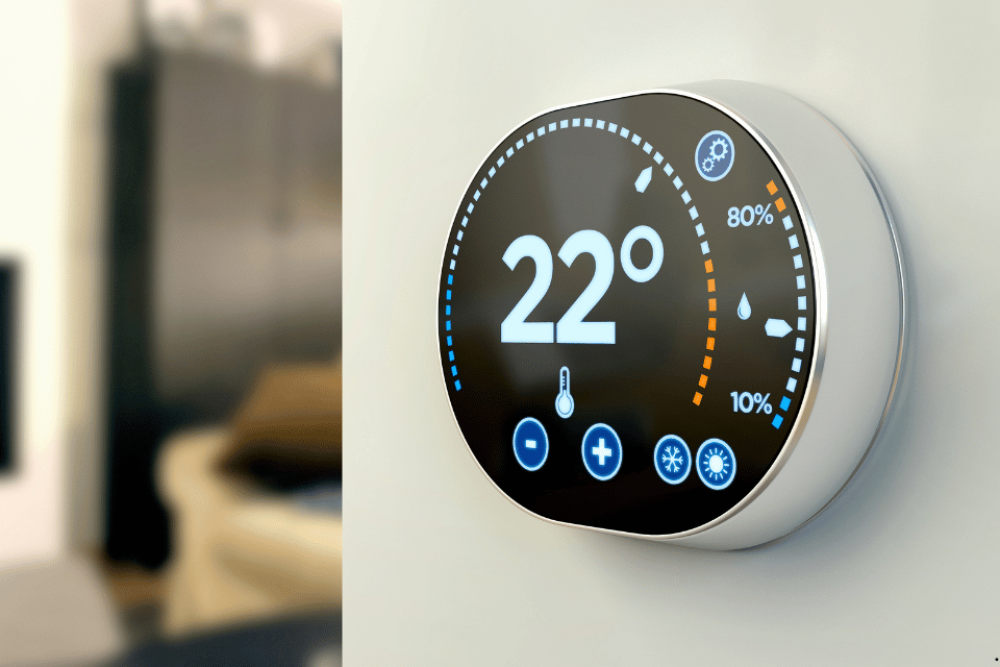
The Impact of Smart Thermostats on HVAC Efficiency
In an era where technology permeates every aspect of our lives, smart thermostats have emerged as pivotal tools in enhancing the efficiency of heating, ventilation, and air conditioning (HVAC) systems. These advanced devices offer more than just remote control of temperature settings; they integrate seamlessly with modern homes, leveraging data and connectivity to optimize energy use and improve comfort levels. We will explore how these innovations contribute to energy savings, environmental benefits, and improved system performance.
Optimizing Energy Consumption
One of the primary benefits of smart thermostats is their ability to optimize energy consumption. Unlike traditional thermostats that require manual adjustments, smart thermostats learn from users' habits and preferences to create efficient heating and cooling schedules. Using sensors and data analytics, these devices can detect when a home is occupied or vacant, adjusting the temperature accordingly. For instance, a smart thermostat can lower the temperature when the house is empty and raise it just before the occupants return, ensuring comfort without wasting energy. This dynamic adjustment leads to significant energy savings, as HVAC systems are not running unnecessarily.
Moreover, smart thermostats often come equipped with energy usage reports, giving homeowners insights into their consumption patterns. These reports can highlight periods of excessive use and suggest ways to reduce energy consumption. Smart thermostats encourage more responsible energy use by making users more aware of their habits. This reduces utility bills and contributes to a lower carbon footprint, aligning with broader environmental goals.
Enhancing System Performance
Smart thermostats do more than just adjust temperatures; they enhance the overall
performance of HVAC systems. Traditional thermostats can cause systems to work harder than necessary, leading to wear and tear over time. In contrast, smart thermostats use advanced algorithms to maintain optimal system performance. They can predict when the system needs maintenance by monitoring its performance and alerting homeowners to potential issues before they become serious problems. This proactive approach to maintenance helps extend the lifespan of HVAC systems and ensures they operate at peak efficiency.
Additionally, smart thermostats can integrate with other smart home devices, creating a cohesive ecosystem that further enhances system performance. For example, they can work with smart vents to control airflow more precisely, ensuring that different home areas are heated or cooled according to individual needs. This zoned approach prevents overworking the HVAC system and ensures that energy is used more efficiently, providing better comfort while reducing strain on the system.
Environmental Impact
The environmental impact of smart thermostats is another crucial aspect to consider. By optimizing energy use, these devices help reduce greenhouse gas emissions associated with heating and cooling homes. HVAC systems are significant contributors to household energy consumption, and by making them more efficient, smart thermostats play a vital role in mitigating climate change. For instance, a study by the Environmental Protection Agency (EPA) found that if every household in the United States used a smart thermostat, it could prevent millions of tons of carbon dioxide emissions annually.
Furthermore, many smart thermostats are designed to be compatible with renewable energy sources. They can be programmed to adjust settings based on solar or wind power availability, ensuring that homes use the cleanest energy possible. This integration with renewable energy sources reduces reliance on fossil fuels and promotes the adoption of green technologies, contributing to a more sustainable future.
User Experience and Comfort
Beyond energy efficiency and environmental benefits, FERSA HVAC Heating & Air Conditioning, LLC of Mesquite smart thermostats significantly enhances user experience and comfort. These devices are designed to be user-friendly, with intuitive interfaces that allow homeowners to control their HVAC systems easily. Many smart thermostats offer mobile apps, enabling users to adjust settings remotely from their smartphones or tablets. This convenience is particularly beneficial for those with unpredictable schedules, as it allows them to ensure their homes are at the perfect temperature before they arrive.
Moreover, smart thermostats can learn from users' preferences and create personalized comfort profiles. By analyzing data on temperature preferences, occupancy patterns, and even local weather conditions, these devices can fine-tune settings to maintain an ideal indoor environment. This level of customization ensures that homes are always comfortable without needing constant manual adjustments. As a result, smart thermostats not only improve energy efficiency but also enhance homeowners' overall quality of life.
Smart thermostats profoundly impact HVAC efficiency, offering a range of benefits that extend beyond simple temperature control. These devices are a significant advancement in home automation technology by optimizing energy consumption, enhancing system performance, and contributing to environmental sustainability. They also improve user experience and comfort, making them an invaluable addition to modern households. As we continue to embrace smart technologies, the role of smart thermostats in promoting efficient and sustainable living will undoubtedly become even more critical.

